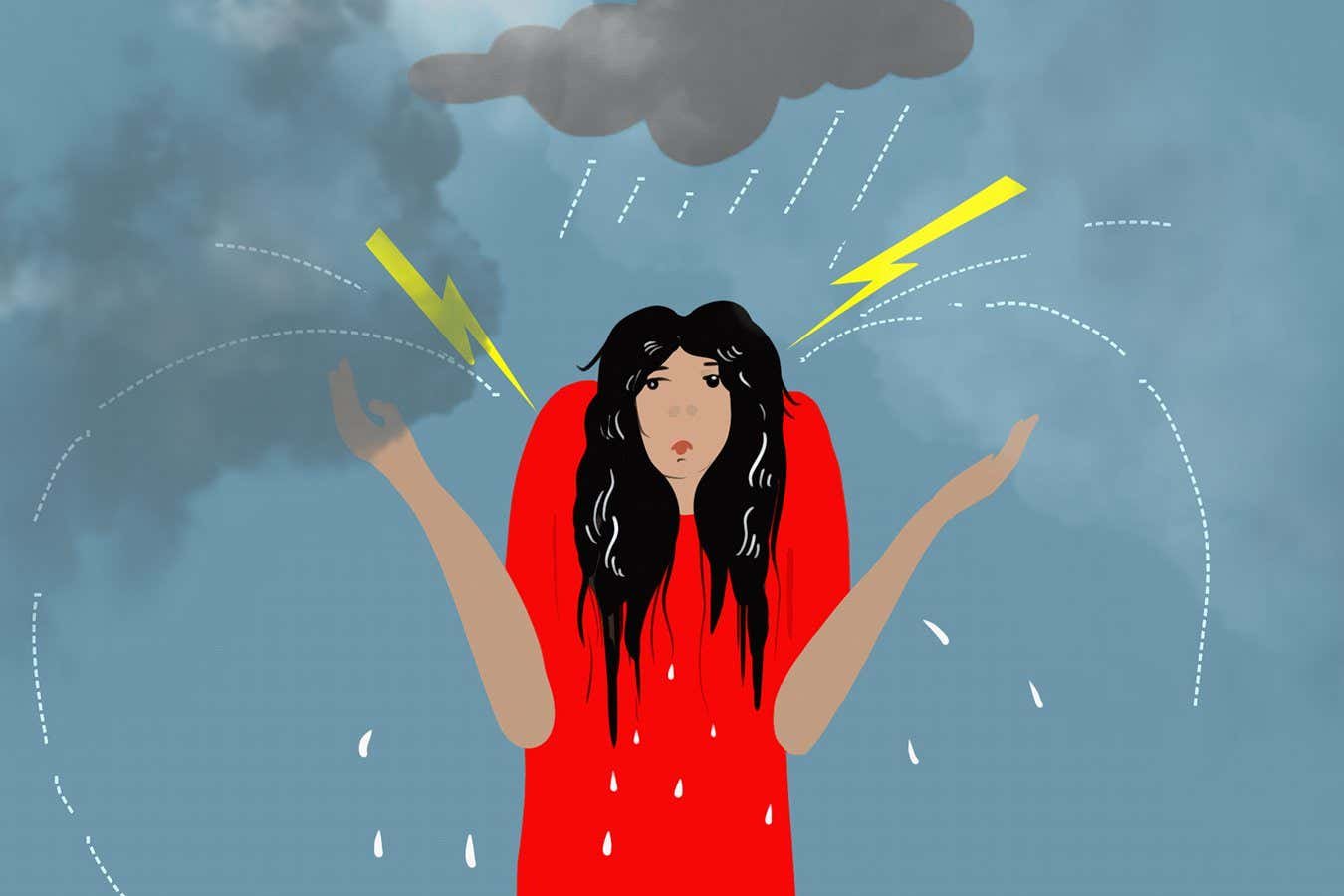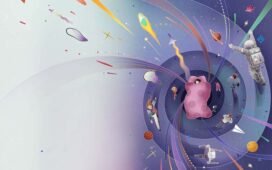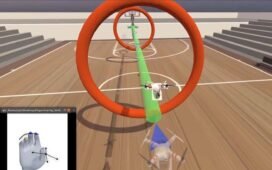
Flash on the pate
While research in Ireland suggests that hats can protect scalps from the sun (see Feedback, 13 July), research in Germany suggests that letting rain soak your head might – just maybe – help you survive if and when lightning strikes your pate.
The researchers used a wetted artificial head, having chosen not to experiment with a wetted genuine human head. Their report, called “Rain may improve survival from direct lightning strikes to the human head”, aimed to “measure the influence of rain during high-energy direct lightning strikes on a realistic three-compartment human head phantom”.
René Machts and colleagues say they found “a lower number of perforations and eroded areas near the lightning strike impact points on the head phantom when rain was applied compared to no rain”.
Homeopathic comeback?
Peter Billard showed his son-in-law some of Feedback’s collection of remarks by doctors as to whether their job sometimes involves entertaining the patient while nature does the healing. The son-in-law works in a paediatric ward in Germany. He responded that “often enough it is easier and faster to prescribe something than to explain and argue why nothing is needed. That is definitively true for antibiotics but also counts for anti-cough agents.”
Billard’s son-in-law mentions some risks that come with taking antibiotics – eventual antibiotic resistance, possible diarrhoea and other side effects, et cetera – then says: “However I have some understanding for colleagues… who sometimes follow the parental wish/push for antibiotics.”
Billard himself muses: “Wouldn’t it therefore be possible to just fob off concerned parents and patients by offering homeopathic remedies? It was obviously a good alternative when it was conceived at the turn of the 19th century – no effective treatment was a massive improvement over the conventional medical treatment back in those days. Perhaps it’s time for a comeback!”
Dishonesty questioned
If you worry about honesty, affix your seat belt and eyeglasses, and read this item.
Just eight days before Feedback commented on the difficulty of getting an honest appraisal of research about dishonesty (Feedback, 28 September), the Journal of Marketing Research (JMR) published an “expression of concern” about an article called “The dishonesty of honest people”, which JMR published in 2008.
The letter explained – though in terse, not-exactly-easy-to-understand language – that a large group of researchers had examined the “dishonesty of honest people” paper, leading them to question its accuracy and honesty.
This brouhaha is a clash of award winners. Dan Ariely is the most prominent of the several co-authors of the disputed 2008 paper. In that same year, he was awarded an Ig Nobel prize for a study “demonstrating that high-priced fake medicine is more effective than low-priced fake medicine”.
The study criticising Ariely’s “dishonesty” study was done by an international group of researchers, two of whom – Bruno Verschuere and Laurent Bègue – had themselves been awarded Ig Nobel prizes. (Verschuere won his in 2016 for a study “asking a thousand liars how often they lie, and for deciding whether to believe those answers”. Bègue won his in 2013 for a study “confirming, by experiment, that people who think they are drunk also think they are attractive”.)
The study Feedback noted on 28 September (“The untrustworthy evidence in dishonesty research”) was published by František Bartoš, who was awarded an Ig Nobel prize this year for a study showing, “both in theory and by 350,757 experiments, that when you flip a coin, it tends to land on the same side as it started”.
Bartoš’s “untrustworthy evidence” paper explicitly questions research done by Ariely. One of those papers was a 2020 follow-up, called “Signing [one’s name] at the beginning [of an official report] versus at the end does not decrease dishonesty”, to a 2012 paper called “Signing at the beginning makes ethics salient and decreases dishonest self-reports in comparison to signing at the end”.
Ariely’s 2012 signature-at-top-or-bottom paper was retracted in 2021. Observers speculate as to whether his 2020 signature-at-bottom-or-top paper will be retracted in 2029.
That’s four Ig Nobel prize winners, with the three most recent questioning research published by the earliest. Ig Nobel prizes honour things that make people laugh, then think. Those criteria say nothing as to whether a thing is correct or incorrect, good or bad, important or trivial. Feedback is personally acquainted with all four of these Ig Nobel prize winners and can honestly report that all four are – as people – thoughtful, charming and warm. This four-threaded tangle epitomises the research-community condition: it is messy, contentious, sometimes funny, sometimes disturbing, very thought-provoking and very human.
Final item
Marc Abrahams has written the Feedback column every week for the past two years. This is his final Feedback column. You can follow his other writings and activities at improbable.com.
Got a story for Feedback?
You can send stories to Feedback by email at feedback@newscientist.com. Please include your home address. This week’s and past Feedbacks can be seen on our website.








